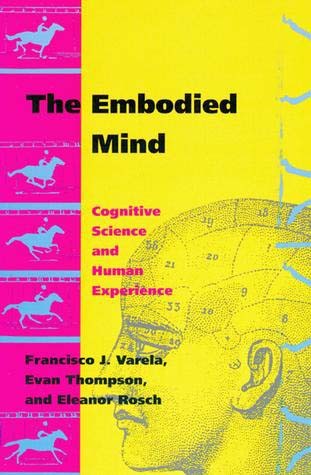António R. Damásio: Descartes’ Error: Emotion, Reason, and the Human Brain (1994)
Filed under book | Tags: · brain, emotion, mind, neurobiology, neurons, phrenology, psychology, self

“Although I cannot tell for certain what sparked my interest in the neural underpinnings of reason, I do know when I became convinced that the traditional views on the nature of rationality could not be correct.” Thus begins a book that takes the reader on a journey of discovery, from the story of Phineas Gage, the famous nineteenth-century case of behavioral change that followed brain damage, to the contemporary recreation of Gage’s brain; and from the doubts of a young neurologist to a testable hypothesis concerning the emotions and their fundamental role in rational human behavior. Drawing on his experiences with neurological patients affected by brain damage (his laboratory is recognized worldwide as the foremost center for the study of such patients), Antonio Damasio shows how the absence of emotion and feeling can break down rationality. In the course of explaining how emotions and feelings contribute to reason and to adaptive social behavior, Damasio also offers a novel perspective on what emotions and feelings actually are: a direct sensing of our own body states, a link between the body and its survival-oriented regulations, on the one hand, and consciousness, on the other. Descartes’ Error leads us to conclude that human organisms are endowed from the very beginning with a spirited passion for making choices, which the social mind can use to build rational behavior.
Publisher Avon Books, a division of The Hearst Corporation, NY, 1994
ISBN 0380726475, 9780380726479
312 pages
Roy Ascott (ed.): Engineering Nature: Art & Consciousness in the Post-Biological Era (2006)
Filed under book | Tags: · art, biology, body, consciousness, max/msp, mind, nanotechnology, nature, space, telematics, text, virtual reality

This third volume in the Consciousness Reframed series, documenting the very latest artistic and theoretical research in new media and telematics including aspects of artificial life, robotics, technoetics, performance, computer music and intelligent architecture. The contributions to this volume represent the work produced at conferences and in journals which are only now emerging into more accessible literature. With over fifty highly respected practitioners and theorists in art and science contributing, there is a stimulating diversity of approach and a rich background of knowledge.
Publisher Intellect Books, 2006
Consciousness Reframed Series
ISBN 184150128X, 9781841501284
333 pages
PDF (updated on 2012-7-24)
Comment (0)Francisco Varela, Evan T. Thompson, Eleanor Rosch: The Embodied Mind: Cognitive Science and Human Experience (1991)
Filed under book | Tags: · body, cognition, cognitive science, connectionism, mind, neuroscience, perception, phenomenology, philosophy, psychoanalysis, self

“Although the scientific study of the mind has developed rapidly in recent years, it has devoted little attention to human cognition understood as everyday lived experience. The Embodied Mind corrects this imbalance within cognitive science by providing a deep and sophisticated treatment of the spontaneous and reflective dimensions of human experience. Varela, Thompson, and Rosch argue that it is only by having a sense of common ground, between mind in science and mind in experience that our understanding of cognition can be more complete. To create this common ground they develop a dialogue between cognitive science and Buddhist meditative psychology and situate this dialogue in relation to other traditions, such as phenomenology and psychoanalysis.
The dialogue proceeds in five parts. The first introduces the two partners and explains how the dialogue will develop. The second presents the computational model of mind that gave rise to cognitive science in its classical form. The authors show how this model implies that the self is fundamentally fragmented and introduce the complementary Buddhist concept of a nonunified, decentralized self. The third shows how cognitive science and Buddhist psychology provide the resources for understanding how the phenomena usually attributed to a self could arise without an actual self. The fourth presents the authors’ own view of cognition as embodied action and discusses the relevance of this view for cognitive science and evolutionary theory. The fifth considers the philosophical and experiential implications of the view that cognition has no foundation or ground beyond its history of embodiment and explores these implications in relation to contemporary Western critiques of objectivism and the nonfoundationalist tradition of Buddhist philosophy.”
Publisher MIT Press, 1991
ISBN 0262720213, 9780262720212
328 pages
PDF (updated on 2020-4-17)
Comments (3)
